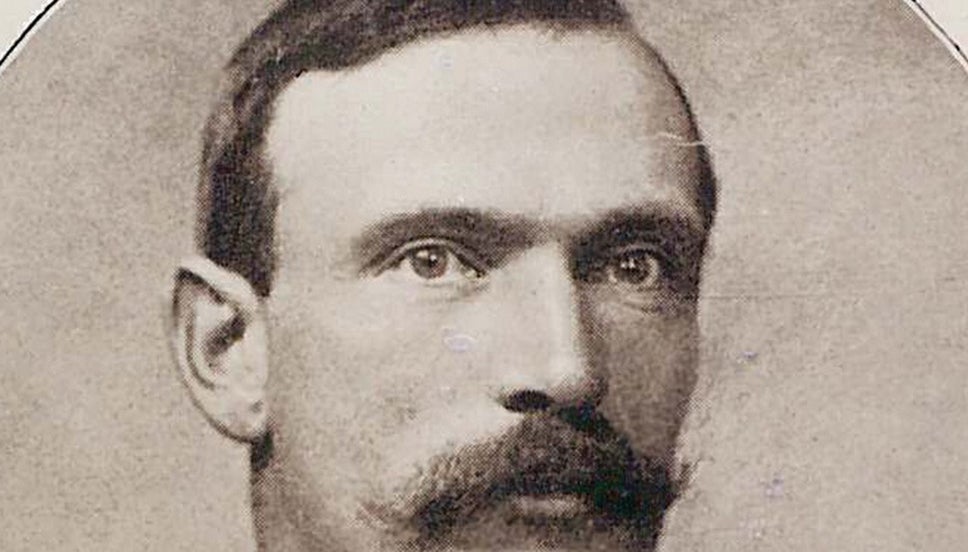The Open Championship in the 19th century saw the burgeoning event go on a journey of development, prestige and growth. Records were broken continuously, and the drama of the Championship we know today became greater and greater with each playing.
But perhaps no player and no Championship greater encapsulated the pioneering spirit of golf and drama at The Open in the 19th century, than Willie Campbell's performance in The 27th Open.
Campbell had recorded three top-fives at The Open in the early 1880s, before finishing runner-up in the 1886 Championship to David Brown, a golfer he had grown up playing with at Musselburgh alongside Willie Park Jnr and Willie Dunn.
But in 1887, the man with a reputation as the finest matchplay artist around was the pre-Championship favourite as The 27th Open returned to Prestwick, the place Campbell had recently moved to from Musselburgh.
Campbell began his Championship in the 10th match out, with other pre-eminent golfers Park and Willie Fernie in the match ahead. The fan favourite Campbell, already winning over the locals, was said to have had a 'monopoly of the spectators' during the day, who were out in remarkably good force considering the weather.
The 27th Open was played almost entirely in storms and clouds, with heavy rain falling 'incessantly' and with such vigour that it 'rendered the links dull and heavy'. Heavy crosswinds were also abound to create generally horrendous conditions.
But the brave spectators picked the right pairing to watch. With two consecutive threes to start his Championship bid, Campbell recorded a stunning score of 35 on the outward nine. A back nine of 42 left Campbell with a remarkable total of 77 strokes on a miserable morning, four strokes better than anybody else during the round. It was the lowest score ever recorded over 18 holes at Prestwick by two strokes, and only the second ever sub-80 score on the links.
In fact, Campbell's score was later proven all the more extraordinary, as no other player would break 75 in the 19th century at Prestwick, despite significant improvements in the game's technology, greatly expanded fields, the introduction of 72-hole Championships in 1892, far more favourable conditions in 1897 and even the emergence of The Great Triumvirate.
In 1887, however, Campbell used his fantastic first round to build a significant advantage with just a few holes left to play. Taking 53 strokes from 12 holes in his final round, Campbell was on pace to break 80 again and deliver a stunning victory, but back-to-back sixes came at an inopportune time to trim his lead.
Approaching the 16th hole of the final round, he was still two strokes up on Park and three strokes ahead of Bob Martin. Yet Campbell found a grassy knoll above a bunker off the tee with a heeled stroke, and could barely see the ball. He hacked at it, and it fell back into the bunker. From there, a debacle in the sand left the popular Scot with a nine, and a lost lead. The bunker has since come to be known as 'Willie Campbell's Grave'.
An eventual score of 87 proved three strokes too many for Campbell, as his old friend and rival Willie Park Jnr won the Claret Jug for the first time. Park shot a brilliant 79 in round two, with play that was described as perfect, where 'nobody could detect a fault', and completed his round without finding a single bunker, nor taking a six on his card.
Less than two weeks later, to add further to the blow Campbell would have felt, he won a match over Park by five holes and seven strokes at Prestwick. Campbell reportedly never lost a money match from the period of 1883 to 1888, and comfortably beat the likes of Park on each and every occasion during this period, barring a single match where Campbell was injured.
Campbell would never win an Open, unlike Brown and Park with whom he was raised on the Musselburgh links, and he emigrated to the United States in 1894, one of the first top golf professionals to do so from Scotland. He died in 1900 after a battle with cancer, aged 38.
Campbell's place in the game of golf was secured with the greatest of respect, alongside his character and reputation, posthumously. But history still unfavourably remembers the nine he took at Prestwick in The 27th Open, and his unfortunate legacy in strokeplay at The Open.
It may have been of some small comfort to the man, that Willie Campbell's Grave still gets plenty of use at Prestwick, to this day.
